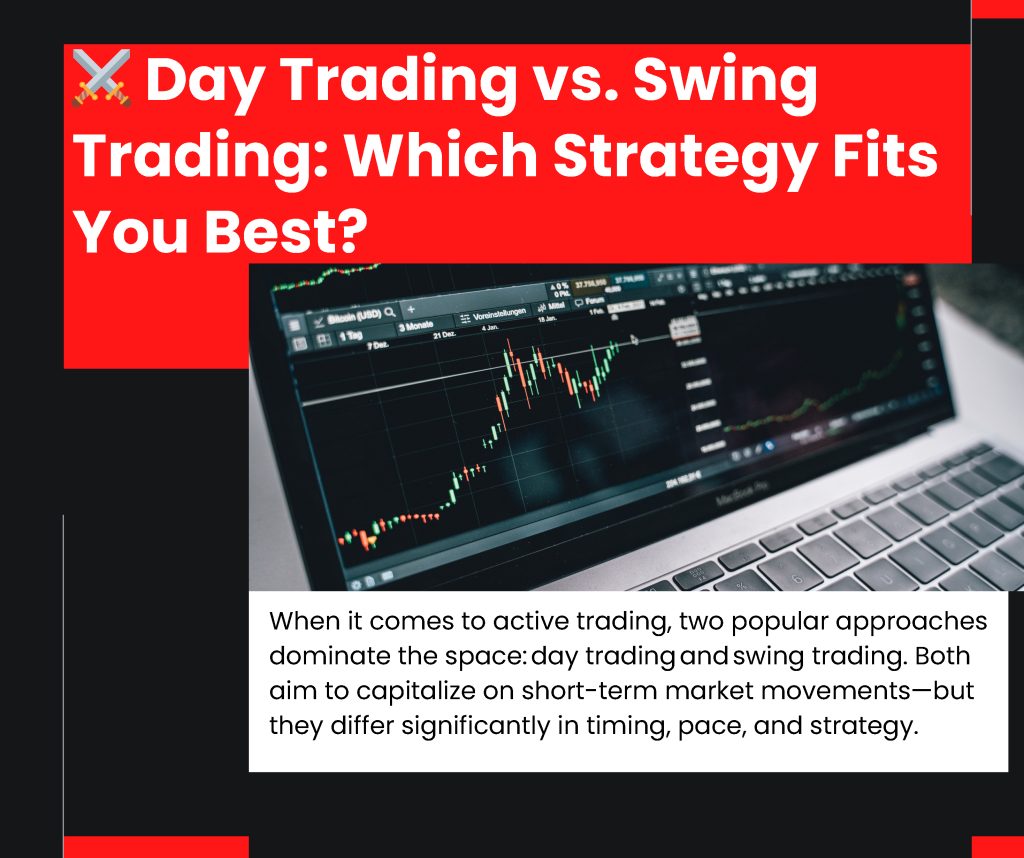⚔ Day Trading vs. Swing Trading: Which Strategy Fits You Best?
When it comes to active trading, two popular approaches dominate the space: day trading and swing trading. Both aim to capitalize on short-term market movements—but they differ significantly in timing, pace, and strategy.
🕒 1. Time Commitment
Day Trading: Trades are opened and closed within the same day— often within minutes or hours. It requires constant attention during market hours.
Swing Trading: Positions are held for several days to weeks, allowing traders to step away from the screen more often.
✅ Best for:
Day trading: Full-time traders or those with flexible daytime hours. Swing trading: Part-time traders or professionals with other commitments.
📈 2. Trading Frequency
Day Trading: Dozens of trades per day are common. High- frequency, high-pressure.
Swing Trading: Fewer trades—usually a few per week or month, depending on market setups.
🔁 If you like fast-paced action, day trading might appeal to you. If you prefer a slower pace, swing trading is likely a better fit.
🧠 5. Skillset & Emotional Control
Day Trading: Requires fast reflexes, emotional discipline, and technical skill. Mistakes can be costly in minutes.
Swing Trading: More strategic, relies on technical and sometimes fundamental analysis. Emotions are easier to manage.
🧘♂ Swing trading may suit those who prefer slower decision- making and more thoughtful analysis.
💰 3. Capital Requirements
Day Trading: U.S. regulations require a minimum of $25,000 in your account to pattern day trade stocks.
Swing Trading: No minimum account size for swing trading, making it more accessible to new traders.
💸 Swing trading is often more affordable to get started.
⚖ 4. Risk & Reward
Day Trading: Higher risk due to rapid decisions, smaller margins for error, and more trades.
Swing Trading: Lower immediate risk per trade, but holding positions overnight introduces gap risk (price jumps between sessions).
⚠ Both carry risk, but swing trading gives more time for analysis and decision-making.
🧭 Final Verdict: Which One Is Right for You?
🕰 If you have full-time availability, thrive in fast-paced environments, and enjoy technical analysis—day trading might be for you.
🧩 If you have limited time, prefer a strategic pace, and want
to grow your account while managing risk—swing trading may suit you best.
